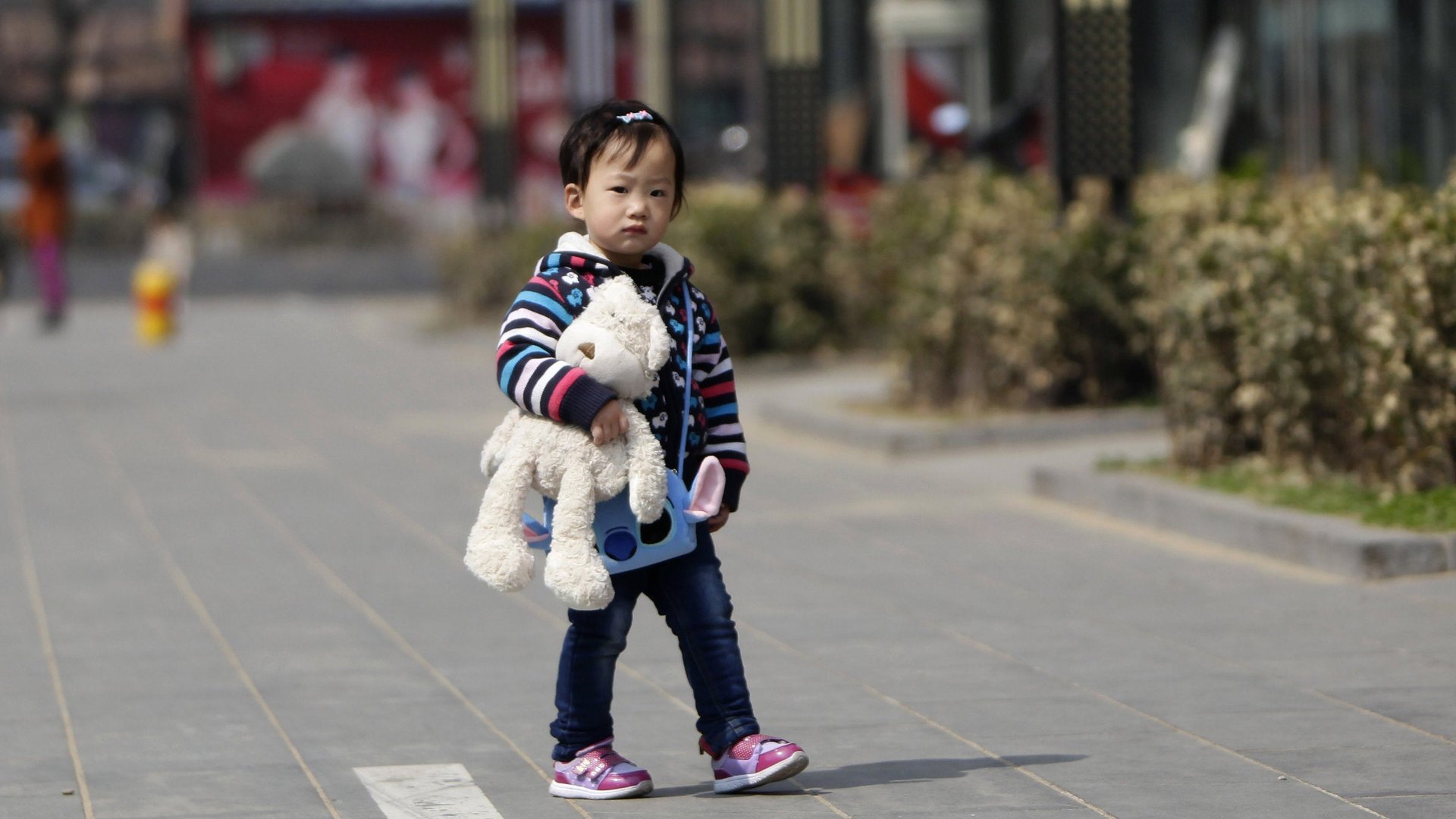My parents spent their life savings to have me—a second child in China
This item has been corrected.


This item has been corrected.
Sometime earlier this year, my mother, a native of Zhejiang province, was shocked to learn that China’s one-child policy was not the rule of law everywhere. “Are you saying not every country has a one-child policy?” she said.
Hearing that made me sad. It was because of the one-child policy that my mother resorted to an illegal clinic where she had the IUD that the hospital inserted, immediately after the birth of my older brother in 1985, removed. It was because of this policy that she then hid with her relatives in another village during her next pregnancy—when she was carrying me.
I am an unwelcome second child. The Chinese government would have preferred I had never been born. If my mom’s pregnancy was ever discovered, I would have been aborted.
Now, after almost 34 years of enacting it and 24 years after my birth, China has reversed its one-child policy. As long as one parent is a single child, families can now welcome a second child. People like me, whose parents weren’t very obedient, will just have to marry another only child if we want two kids. I might be spared from my mother’s pain.
As I ponder the extent to which the government will guide my love life, I think about one huge effect of the policy: the plethora of male only-children that are my age. Being a woman is obviously an advantage since by 2020, there will be 24 million more men than women of marriageable age in China, as a result of the one-child policy and the skewed gender selection it created. The birth preference in Chinese tradition is for a boy to carry on the family name and the blood line. If a family can only have one child, parents try to make sure it’s a boy. Neighbors considered my parents’ decision to have a second child not worth the risk since they already had a boy. But for my parents, who grew up with five and six siblings each, they just couldn’t accept a kid growing up without the love of a brother or sister.
Last week, I congratulated a close friend from Beijing, a mother of a six-month-old son, who will now be able to have a second child. Her response was less than enthusiastic: “It doesn’t matter. Even the policy doesn’t change, as long as you have enough money to buy through, you can always have second or third kid.” In other words, before the actual reversal, the policy only applied to people who couldn’t afford to bend the rules.
Indeed, in recent years, it’s not rare for rich urban families to have had a second child. For decades, the one-child policy was more strictly enforced in urban areas. Research from Tsinghua University (pdf, link in China) shows that in urban areas during the ’90s, the probability for women who were born between 1948-1970 to have second child was lowered by 30%, compared to women who were before 1948. There was almost no affect for women from rural areas.
In rural areas, having more than two children is also not uncommon. Like my mother, if the parents are not reported during pregnancy and safely delivered the baby, paying a fine is the final negotiation with the government. In 1989, my parents, both farmers, paid their entire savings, RMB 364, just under $100 at the time, for my birth. During the 1980s, the largest penalty for a second child was about RMB 2,000 or around $540. Now, the highest single fine for an extra kid is 1 million RMB ($164,134). Last year alone, the birth control bureau in 19 provinces collected RMB 16.9 billion ($2.7 million) in penalties (link in Chinese) for families having a second child. This team of 500,000 officials is unlikely to be dismissed anytime soon; as everywhere in China, countless parents are still fighting for the chance to have more than one child.
Officials assure that there are not many couples who fit the requirement of the new policy—that is, at least one of the parents is an only child. According to the National Health and Family Planning Commission, there are about 15-20 million couples who are now free to have a second child, and only half of them expressed the willingness to raise two children. “There can be plans to divide time gap among births, give priorities to elderly couple and ensure the approval process for the applications of a second child,” says Wang Peian, deputy chief of the commission.
Too often, a big number is used to interpret results—such as control of the population to secure China’s economic development. The commission alleges that a total of 400 million births were successfully prevented because of the policy. If this is true, that this plan has led to China’s growth, then before the my government further directs its plan for whom I marry and how many children I have, maybe first there should be a plan to fix marriages of the 24 million men who won’t be able to find wives, a plan to ease only children’s burden to care for elderly parents, a plan to soothe the pain of parents who lost their children, to make whole the families who were not as lucky as mine.
Correction: An earlier version of this post stated that the birth control bureau collected RMB 16.9 million in fines.